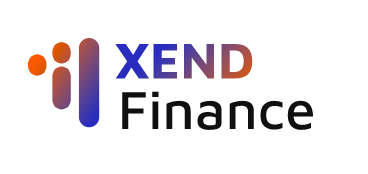It has been an exciting week in the crypto space as bitcoin climbed to a new all-time high. In this weekly roundup, we will cover this story, the discovery that ICE3X’s liquidator has made, Xend Finance’s launchpad roll out, and more.
ICE3X Liquidator Finds a Discrepancy of 54 BTC
ICE3x liquidator, Dewald Breytenbach of National Liquidators, has said that it can only account for 22 out of the 76 BTC that belonged to the defunct crypto exchange. The South African exchange closed down about six months ago and has been in liquidation ever since. Before shutting down, ICE3X suspended trading due to discrepancies in its litecoin and bitcoin holdings. According to the liquidator, they are talking to ICE3X’s tech provider, Merkeleon, to make sense of the discrepancy.
Several reports said that the exchange closed down because of low liquidity. However, it now appears that the reason could have been a dispute between the exchange and Merkeleon.
“The problem appears to have started when a dispute arose between ICE3X and its platform provider, Merkeleon, based in Europe,” said Breytenbach.
Xend Finance Rolls Out Launchpad
 DeFi platform, Xend Finance, has rolled out the first African decentralised launchpad. The launchpad will support projects that want to launch through digital assets, token sales, and the sale of physical hardware devices. The Xend Launchpad will connect these projects with the right community and investors.
DeFi platform, Xend Finance, has rolled out the first African decentralised launchpad. The launchpad will support projects that want to launch through digital assets, token sales, and the sale of physical hardware devices. The Xend Launchpad will connect these projects with the right community and investors.
“By staking and holding $XEND tokens, investors can gain early access to the same top projects that are normally only available to top venture capitalists,” said Xend Finance.
The company will conduct thorough due diligence before listing any projects on the launchpad. Projects can apply here.
South African Crypto Trader Accused of Fraud to Turn Himself In
A South African crypto trader accused of fraud will turn himself in after the police issued a warrant of arrest. Sandile Shezi has, however, denied defrauding the two disgruntled investors through his company Global Forex Institute.
“These shareholders signed up, not for investments, but our education programme. Our training includes technical analysis, fundamentals and a bit of this and that. You go through us to run your own small personal portfolio, not trade,” said Shezi.
The 29-year old crypto trader, known as the youngest millionaire in South Africa, is considering buying out these shareholders. He also said that he was stunned that some shareholders were making fraud allegations, yet they are a part of the business. Shezi has also denied that Global Forex Institute is a financial services provider.
Cardano’s EMURGO Partners with Adanian Labs
 Cardano’s investment arm, EMURGO, has partnered with Adanian Labs. The goal of the partnership is to scale technology startups in Africa. EMURGO has also invested an undisclosed amount in Adanian Labs.
Cardano’s investment arm, EMURGO, has partnered with Adanian Labs. The goal of the partnership is to scale technology startups in Africa. EMURGO has also invested an undisclosed amount in Adanian Labs.
“This investment is focused on achieving one of the goals of Cardano, which is to bring financial and educational empowerment via its blockchain platform to the billions who lack these opportunities,” Africa News reported.
Adanian Labs is a Pan-African venture studio where tech starts on the continent can access important resources to help them scale sustainably.
“We are extremely encouraged by the partnership with EMURGO Africa as their vision to build a thriving technology ecosystem in Africa is well aligned with ours. We aim to build 300 tech-powered, impact-driven startups by 2025,” said John Kamara, Adanian Labs CEO.
Bitcoin Surpasses the $66,000 Mark
On October 20, 2021, bitcoin surpassed the $66,000 mark to record $66,930.39, according to data on Coinmarketcap. This was the first time bitcoin recorded such a price.
The new all-time high came after the listing of Proshares Bitcoin Strategy ETF on the New York Stock Exchange. This was the first bitcoin ETF to be listed in the US.
Bitcoin has been hovering above $60,000 over the last few days, signalling that it could hit new highs before Q4 2021 closes.
To learn more about Bitcoin, download the Bitcoin Beginner’s Handbook for free.


 News1 year ago
News1 year ago
 News2 years ago
News2 years ago
 News3 years ago
News3 years ago
 News2 years ago
News2 years ago
 News2 years ago
News2 years ago
 Sponsored Posts3 years ago
Sponsored Posts3 years ago
 News2 years ago
News2 years ago
 News2 years ago
News2 years ago

 DeFi platform, Xend Finance, has rolled out the first African decentralised launchpad. The launchpad will support projects that want to launch through digital assets, token sales, and the sale of physical hardware devices. The Xend Launchpad will connect these projects with the right community and investors.
DeFi platform, Xend Finance, has rolled out the first African decentralised launchpad. The launchpad will support projects that want to launch through digital assets, token sales, and the sale of physical hardware devices. The Xend Launchpad will connect these projects with the right community and investors. Cardano’s investment arm, EMURGO, has partnered with Adanian Labs. The goal of the partnership is to scale technology startups in Africa. EMURGO has also invested an undisclosed amount in Adanian Labs.
Cardano’s investment arm, EMURGO, has partnered with Adanian Labs. The goal of the partnership is to scale technology startups in Africa. EMURGO has also invested an undisclosed amount in Adanian Labs.














 Central African Republic (CAR) has set up a 15-member committee that will be responsible for developing a bill on the use of cryptocurrencies and tokenization in the region.
Central African Republic (CAR) has set up a 15-member committee that will be responsible for developing a bill on the use of cryptocurrencies and tokenization in the region.






